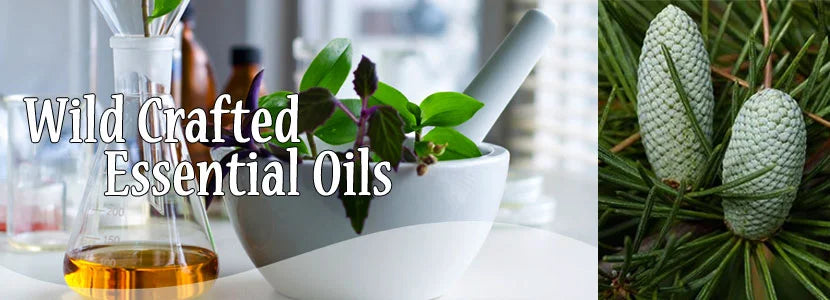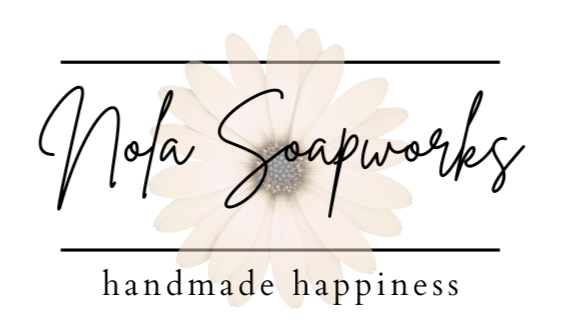Natural ~ Organic ~ Wildcrafted
What do these terms really mean??
There are several companies advertising Natural skin care products. We thought it was prudent to educate our friends and family on what these terms mean, exactly. Unfortunately, even in the "natural" world, there are a few bad apples who will misrepresent themselves because unlike other areas in the cosmetics industry.. it is not regulated. So read on and as always.. THINK FOR YOURSELVES !!
The best thing you can do for yourself and your well being is to research and arm yourself with knowledge.
Natural: Legally, this means nothing—it's a completely unregulated term and should be thought of as pure marketing. It will generally mean that at least some natural ingredients " COULD" have been used in the formula. Look at the label and if the product is full of ingredients born in a lab (ethyl acetate, nitrocellulose, red #11, etc.) and the only " Natural" one you recognize is buried at the bottom, that means it's hardly natural. If all the ingredients listed are just the Latin or Common names for things you recognize—for example: sodium bicarbonate is baking soda—the product is all-natural. These ingredients are ALWAYS listed first.
Some products use synthetics extensively, which includes preservatives and just a touch of botanicals and claim it is natural or organic for the skin. When reading the ingredient label, you kind of have to wonder, what is the point? When the products primarily consist of synthetic chemicals with a few fancy organics, the benefits an organic can offer is negated by the synthetics used.
Organic: The term "Organic" gained steam in the 1990's. This category is highly regulated and companies can get into trouble if their labels are misleading. If you do see the Certified Organic logo, it means that said ingredient (or almost 100% of the ingredients in an organic product) have been grown and processed under a very strict code of cleanliness, with no pesticides or fertilizers, and absolutely no genetically modified organisms." The hitch.. only 70% of the ingredients in the product must be organic.. the remaining 30% are not regulated.
Some natural skin care companies opt not to be certified organic, like NOLA Soap Works, for a few reasons. First, it is very expensive. Secondly, if we find a producer for lavender who has sustainable practices, uses no pesticides and has fair labor practices but is NOT certified organic.. we could not use their product. Even if it were of a higher quality than an organic farmer. This ties our hands when sourcing sustainable ingredients, and for this reason, NOLA Soap Works is not certified Organic. We DO use organic ingredients in all our products, but the essential oils may be wildcrafted rather than organic.
Wildcrafted: These essential oils come from plants that are not farmed or sprayed with any kind of pesticide. They are plants that are wild, native and organic by their own nature. Simply said, they are plants gathered from the wild! They are harvested in a sound, ethical and sustainable manner without the use of chemicals. This means that respect is given to the plant and only certain parts of the plant are used like the leaves or flowers etc. If a whole plant is taken, it is replaced with seeds to grow a new vital plant.
Wild crafted essential oils, like organic and conventional essential oils, do change from season to season and you can expect a different type of crop each year.
Here are some examples of the most popular or widely used of the wild crafted essential oils and their origin:
- Australia- eucalyptus, tea tree, sandalwood, anise, Buddha wood and cypress leaf.
- India- basil, sandalwood, nutmeg, palmarosa
- Madagascar- ravensara, ylang-ylang
- France- rosemary, lavender, spearmint, tarragon, thyme, Vetiver, clary sage
- Brazil- rosewood
- Canada- white sage, ginger, spruce
- Italy- tangerine, clary sage, mandarin
- Nepal- spikenard
- Asia- cananga, cardamom, bay laurel
- Algeria- cedarwood atlas from the Atlas Mountains
- Sri Lanka- cinnamon leaf, citronella, lemon grass
- Indonesia- clove, patchouli
- Egypt- sweet marjoram, anise
- Far east- neroli, orange
- Northeast Africa- frankincense
- Russia- pine needle
- Morocco- chamomile
- Mediterranean- rosemary, thyme, lavender
- Turkey- oregano
- Spain- spike lavender, thyme and sage
We hope you enjoyed the info and Stay Crunchy !!
Essentially,
Christine










